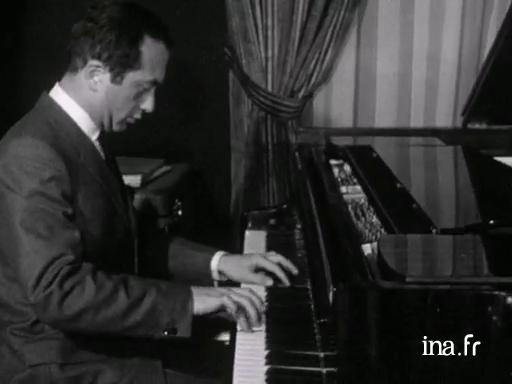Conversation with Alexis Weissenberg

Information
Interview with pianist Alexis Weissenberg on what Paris represents for him and on his role as an interpreter of musical works. He then plays a song.
Context
Born in Sofia in 1926 to a family of musicians, Alexis Weissenberg gave his first concert at eight years old, then worked with Leo Kestenberg in Israel and with Olga Samaroff in New York. He started in New York in 1947, playing a Rachmaninoff concerto. He went on tour around the United States and in Europe but after gaining French citizenship in 1956 he interrupted his career to improve his technique. From 1966 he began to play again with great success throughout the world, as a soloist or with the best conductors (Karajan, Celibidache, Abbado, Giulini, Ozawa, Solti...). Alexis Weissenberg has also tried composition: scores inspired by jazz or by Charles Trenet, and he has performed a musical comedy in Paris:La Fugue, which had a mixed success.
His repertoire ranges from Bach to Stravinsky passing by the Romantic masters, Schumann, Beethoven, Chopin of course, but particularly Rachmaninoff. In Switzerland he created the Alexis Weissenberg's Piano Masterclass, aimed at young pianists. An abundant discography shows the power and shared virtuosity of this great pianist of the twentieth century.


















